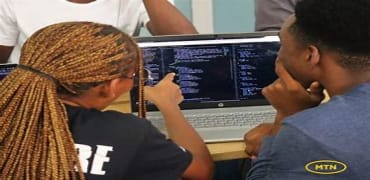N300 Million Lifeline: How FCTA’s Scholarship Scheme is Changing the Fate of 16,225 Indigent Students
N300 Million Lifeline: How FCTA’s Scholarship Scheme is Changing the Fate of 16,225 Indigent Students
By Achimi Muktar
In a bold move to support education for the underprivileged, the Federal Capital Territory Administration (FCTA) has commenced the disbursement of N300 million in scholarships to 16,225 indigenous and indigent students across public schools in the FCT.
However, FCT Minister Nyesom Wike believes this is just the beginning. Speaking at the disbursement event in Abuja on Thursday, Wike, represented by his Chief of Staff, Chide Amadi, acknowledged that while the scholarship scheme was a significant step, it was merely “scratching the surface” given the sheer number of struggling students in need of financial aid.
Beyond Scholarships: A Commitment to Education
Education, according to Wike, is the bedrock of national development, and the FCTA is determined to ensure no student is left behind. Beyond financial assistance, he emphasized the administration’s long-term commitment to supporting both students and teachers.
Key initiatives approved by the minister include:
Participation of FCT public schools in prestigious global science events such as the World Robotic Festival in Houston, Texas, and the Continental Open Africa AI Championship in Cape Town, South Africa.
Training and retraining of teachers at all levels to enhance professional development.
Provision of vocational skills training for students, youths, women, and out-of-school children.
A Massive Investment in the Future
The Mandate Secretary of the Education Secretariat, Danlami Hayyo, commended Wike’s unwavering dedication to quality education, revealing that over N230 billion has been invested by the FCTA in school infrastructure, including new constructions and renovations.
Similarly, Hannah David, the Director of the FCT Scholarship Board, highlighted the impact of the initiative since its inception in 2020, stating that over 146,000 indigent students had benefited from the program. The scholarship covers basic, post-basic, special needs centres, the Nigerian Law School, and foreign tertiary institutions.
Notably, students with disabilities are also included, receiving wheelchairs and other essential learning materials.
The Call for More Support
Despite these achievements, David emphasized that the government cannot do it alone. She called on corporate bodies, philanthropists, and other stakeholders to join forces in expanding the reach of the scholarship program.
With thousands of students still in desperate need of financial aid, the FCTA’s initiative is a beacon of hope—but the journey is far from over. The question remains: Who else will step up to secure the future of Nigeria’s next generation?




















